Hair loss can be one of the most frustrating symptoms associated with thyroid problems.
And thyroid-related hair loss is not just associated with low thyroid conditions but also high thyroid conditions as well.
Today, though, we will be focusing on hair loss associated with levothyroxine.
Levothyroxine is the most commonly prescribed thyroid medication out there right now.
In fact, it’s one of the most commonly prescribed medications in the United States.
Levothyroxine is used to treat patients who have LOW thyroid function so people who are taking this medication have hypothyroidism.
Levothyroxine is supposed to normalize thyroid function by providing your body with the very thing it needs if you don’t have enough thyroid hormone.
We know that one of the side effects of having LOW thyroid function is hair loss.
And with that in mind, we have a little bit of a problem:
How can it be the case that the very medication that is supposed to fix a low thyroid causes one of the symptoms associated with that very condition?
In other words, shouldn’t it be the case that treating a low thyroid will help your hair grow?
You would think so but it’s not quite that easy.
Today you will learn:
- More about the normal hair growth cycle
- How your thyroid helps to regulate these cycles
- How levothyroxine impacts hair loss
- Why you may need to change your thyroid medication completely to fix your hair loss
- And much more
Let’s jump in…
3 Ways Levothyroxine May Cause You to Lose Your Hair
Before we talk about how levothyroxine causes hair loss, let’s talk a little bit about hair loss and thyroid function in general.
You probably already know that your thyroid controls and regulates many systems in your body (1).
This is why patients who suffer from low thyroid function suffer a myriad of different symptoms ranging from hair loss to weight gain to cold intolerance to constipation.
Thyroid function is required to make each of these areas function and if you experience even a slight decrease in thyroid function, you will feel it.
This same concept applies to your hair follicles.
Thyroid hormone helps to stimulate stem cells in hair follicles (2) which causes them to grow.
If you don’t have enough thyroid hormone stimulation then this will result in fewer hair cycles which you will see as a thinning of the hair on your head.
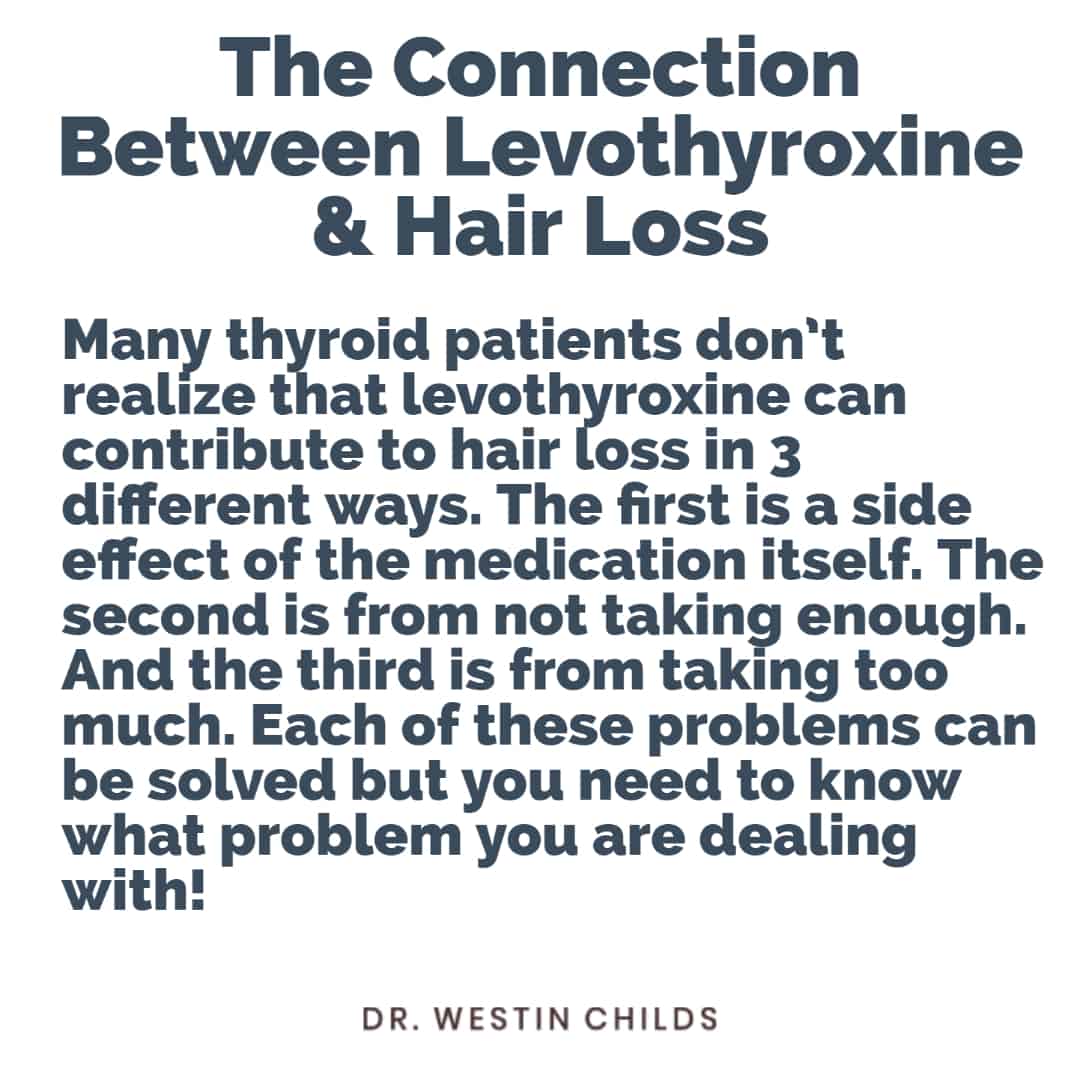
You have to remember that hair loss is a normal part of hair growth cycles.
Even under normal healthy circumstances, you will see hair loss on a regular basis.
The reason this doesn’t result in you going bald is that you are also simultaneously growing hair at the same time.
When you have a thyroid problem, this balance tips in favor of more hair loss and less hair growth.
When this happens, you will start to see more and more hair come out in the shower or when you comb your hair.
This hair fall (or hair loss) will also be accompanied by a DECREASE in how many new hair follicles will start growing.
The result? The typical thyroid hair loss pattern that many of you are probably experiencing right now.
If you are following me so far then you are probably asking why doesn’t levothyroxine help with the hair growth cycle.
Shouldn’t using levothyroxine stimulate hair follicles to grow so that you can regrow your hair?
The short answer is, yes, it should, but due to various reasons, which we will discuss below, it doesn’t always work out that way.
Most of the time, if you are not experiencing hair growth while taking levothyroxine it can be blamed on your dose.
Let me put it this way:
In a healthy state, your thyroid gland is really good at pumping out enough thyroid hormone for all of the cells in your body.
But when you experience a sluggish thyroid, you are replacing thyroid production from your thyroid gland with a prescription thyroid medication (levothyroxine) that you take by mouth.
And pretty much no matter what, this will never be as good as the real thing.
Your thyroid gland can carefully adjust and regulate how much thyroid hormone is being pumped out hour by hour and minute by minute.
That’s not what happens when you take thyroid medication.
When you take thyroid medication, like levothyroxine, you are replacing this complex system with your daily dose of thyroid hormone in a single dose that you take once per day.
It will never be as good as the real thing!
It doesn’t mean it’s impossible to regulate but it does mean that you need to pay close attention to your dose, in other words, how much levothyroxine you take.
Your dose of levothyroxine plays a huge role in whether or not you will be able to regrow your hair:
#1. Your dose of levothyroxine may be too high
If your dose of levothyroxine is too high then you may start to experience hair loss.
And this should make sense.
If you take too much levothyroxine then you will be in a hyperthyroid state and one of the symptoms of hyperthyroidism is hair loss.
And, believe it or not, it happens often!
There are many thyroid patients who are taking levothyroxine for low thyroid function but are accidentally taking too much.
When they take too much it tips them from being LOW thyroid to HIGH thyroid.
Remember:
Levothyroxine contains the same active thyroid hormone that your thyroid gland would be producing naturally (if it was able to).
So it’s actually fairly common to see some thyroid patients taking more than they need (3).
And I’m not talking about accidentally doubling your dose or receiving the wrong dose of medication from the pharmacy.
Because of the reasons I mentioned previously, it can be difficult to nail down how much thyroid hormone YOUR body needs.
Your needs will be different from the next person and each of you will react a little bit differently even to the same dose of thyroid medication.
In addition, how much levothyroxine you need may change over time!
So even if you were taking the same dose of levothyroxine for years and years, it may be the case that something has changed in your body which requires you to adjust your dose.
If you don’t adjust your dose then you may stay on an unnecessarily high dose of thyroid hormone which can build up in your system over time.

If this goes on for months and months, you may enter into a hyperthyroid state and start to experience hair loss.
Taking too much levothyroxine does happen but it’s not quite as common as not taking enough, which we will talk about in just a minute.
How do you know if you are taking too much levothyroxine?
You have to look at 3 key areas:
- The first is your TSH level – Most people who are experiencing hair loss related to too much levothyroxine will experience a suppressed TSH. A suppressed TSH is different from a low TSH. You can sometimes experience hair loss with a low TSH but it’s most frequently associated with a suppressed TSH. A suppressed TSH means that your TSH level is undetectable and will register as something like < .005 or something similar. If you see the less than sign then you know it’s suppressed.
- The second is your free thyroid hormone levels – The TSH can’t be used only by itself, though. In addition to a suppressed TSH, you also need to look at both free T3 and free T4 levels. If you find that you have a suppressed TSH AND either high free T3 or high free T4 then it’s likely that you are taking too much levothyroxine.
- And the third first is your symptoms – Lastly, you also need to pay attention to how you are feeling. This step is very important because there are some people who may have a suppressed TSH and still not be hyperthyroid. But if you have a suppressed TSH, a high free T3 or high free T4, AND the symptoms of hyperthyroidism, it is VERY likely that you are taking too much levothyroxine. Hyperthyroid symptoms to look out for include things like anxiety, rapid heart rate, heat intolerance, diarrhea, tremors in your hands, and even weight loss.
Managing hair loss from taking too much levothyroxine is actually quite easy!
All you need to do is reduce your dose!
As you reduce your dose, your thyroid will come into balance and you should regain normal stimulation of your hair follicles.
#2. Your dose of levothyroxine may be too low
Not taking enough levothyroxine is far more common than taking too much.
So if you are having issues figuring out what exactly your problem is, this is the first place to look!
I’ve lost track of the number of thyroid patients who come to me and tell me that they’ve tried thyroid medication but it just didn’t work for them.
While it is true that you may not be responding to your thyroid medication, there’s no way to know that for sure unless you know that your dose is sufficient!
The truth is that most thyroid patients are being underdosed whether they realize it or not.
The reason for underdosing patients with levothyroxine is simple:
Doctors would always rather give less than is necessary to prevent issues or symptoms from taking too much.
This applies to virtually all medications including hormones as well as thyroid medications like levothyroxine.
In addition, the standard measurement by which doctors evaluate thyroid dosing is the TSH and the TSH does not always correlate with your free thyroid hormone levels.
Put another way, it’s very possible for you to have a “normal” TSH but still not have enough thyroid hormone coursing through your body.
If you aren’t taking enough levothyroxine then you will remain in the low thyroid state!
And, as we’ve already discussed, the low thyroid state is associated with hair loss.
How do you know if you aren’t taking enough?
The first place to look is at your TSH level.
It’s difficult to nail down a specific TSH range but, in general, you can use these guidelines:
- You want your TSH to be less than 2.0 or 2.5 at most. If your TSH is higher than 2.5 while you are taking levothyroxine then you need more.
- Many thyroid patients have more control over their hypothyroid symptoms with a TSH less than 1.0.
- Don’t be afraid of a low TSH but try to avoid a suppressed TSH. A low TSH will flag as “low” but will not contain the less than sign as mentioned above in #1. A low TSH is usually some value less than 0.5.
In addition to looking at your TSH, you should also check on your free T3 and free T4 levels.
If you find that your free T4 or free T4 levels are flagging as LOW then there is a very high chance that you are not taking enough levothyroxine, regardless of what your TSH shows.
The treatment for this problem is quite simple because all it requires you to do is to take more levothyroxine.
Even though the solution is simple doesn’t mean getting your doctor on board is easy.
Some doctors are very set in their ways and have no interest in looking at more than just the TSH or free T3/free T4 levels.
If you find your doctor is not interested in looking at these lab tests then please see this resource which can help you find a better doctor.
#3. Your hair loss may be a side effect of levothyroxine (regardless of the dose)
This one is a little bit more tricky than number 1 and number 2 and can be very frustrating if you aren’t already aware of it.
The truth is that levothyroxine itself can cause hair loss independent of whatever dose you are taking.
It may be the case that you are taking the exact amount of levothyroxine that your body needs to function but you can STILL experience hair loss.
That’s because one of the side effects of levothyroxine is hair loss.
To make matters worse, all thyroid medications have the potential to cause hair loss as well!
All thyroid medications can cause hair loss in a dose-dependent way and all thyroid medications can cause hair loss independent of whatever dose you are taking.
The good news is that even if the various types of thyroid medications CAN cause hair loss doesn’t mean that they always do or always will.
Put another way:
If you find that levothyroxine is causing hair loss it’s probably the case that Synthroid or Tirosint will not.
If you find that Synthroid is causing hair loss then it’s probably the case that levothyroxine or Tirosint will not.
If you find that Tirosint is causing hair loss then it’s probably the case that Synthroid and levothyroxine will not.
So even though they all have the potential to cause hair loss doesn’t mean that they all will.
And what I just described is the treatment for this type of levothyroxine-related hair loss.
All you have to do is switch thyroid medications until you find one that doesn’t cause hair loss as a side effect.
Before you do this, though, you need to be sure that your dose of levothyroxine is not too high or too low.
If you prematurely start changing around what type of thyroid medication you are taking you run the risk of causing more harm than good.
If you don’t ensure that your dose is stable then you will introduce new variables into the equation and you will end up more confused and frustrated than when you started.
For that reason, always ensure that your dose is optimized BEFORE you start thinking about switching to a different brand of thyroid medication.
You can find a list of prescription thyroid medications that you might consider swapping to if you are experiencing hair loss with levothyroxine:
- Synthroid
- Tirosint
- Tirosint-sol
- Levoxyl
- Nature-throid
- Armour thyroid
- WP thyroid
- NP thyroid
- Cytomel
- Liothyronine
- Sustained Release T3
- Compounded T4/T3 medication
- Compounded desiccated thyroid medication
- Levothyroxine injections
As you can see, there are still plenty of options for you to choose from if you find that levothyroxine isn’t working for you.
Keep in mind, though, that transitioning between these medications is not always a straightforward process.
Many of the medications listed above contain different thyroid hormones in varying quantities so you will need to use this conversion chart if you swap from a thyroid medication like levothyroxine to one that contains T3 like Nature-throid.
Also, please note that at the time of this writing, several brands of NDT (natural desiccated thyroid) are not available right now but they should be available at some point in the future!
Additional Factors That Contribute to Hair Loss
It is definitely the case that many thyroid patients struggle with hair loss but you should also be aware that other factors can contribute.
Often times hair loss is due to a variety of triggers including problems with thyroid function or thyroid medication.
For instance, low thyroid function can lead to nutrient deficiencies such as iron and vitamin b12, both of which are necessary for hair growth.
If you have these nutrient deficiencies then changing up your thyroid medication will help some but it won’t bring your hair back to its previous state.
You won’t see significant improvement until you replace these nutrients while also changing up your thyroid medication.
If you aren’t seeing improvement in your hair growth after changing your thyroid medication then check out these supplements:
These nutrients are necessary for hair growth and if you don’t have enough of them your hair will not grow even if your thyroid is stimulating your hair follicles.
You can think of these nutrients like the gas in your car and your thyroid like the gas peddle.
You can push down on the gas peddle all you want but if the gas tank is empty then you aren’t going anywhere.
Final Thoughts
Dealing with hair loss as a thyroid patient can be difficult but it isn’t impossible!
Pretty much every thyroid medication, including levothyroxine, has the potential to cause hair loss but this problem can usually be easily fixed by going through this 3-step checklist:
Is your dose of levothyroxine too high?
Is your dose of levothyroxine too low?
Are you experiencing hair loss from levothyroxine itself?
Start from the top and work your way down and you will find that you should see improvement in your hair texture, quality, and how quickly it grows.
If you aren’t seeing results like you want then also be sure to check on common nutrient deficiencies that may impair hair growth.
Replacing these nutrients may also be necessary for many thyroid patients as low thyroid function can cause or exacerbate certain nutrient deficiencies.
Now I want to hear from you:
Are you suffering from levothyroxine-related hair loss?
Did you know that levothyroxine could cause hair loss?
Do you believe that your hair loss is related to your medication itself or to your dose?
Were you aware of the other nutrients involved in hair growth?
Share your comments or experience below!
Scientific References
#1. https://www.ncbi.nlm.nih.gov/books/NBK500006/
#2. https://www.ncbi.nlm.nih.gov/pmc/articles/PMC4454174/
#3. https://www.aafp.org/afp/1998/1001/p1192.html
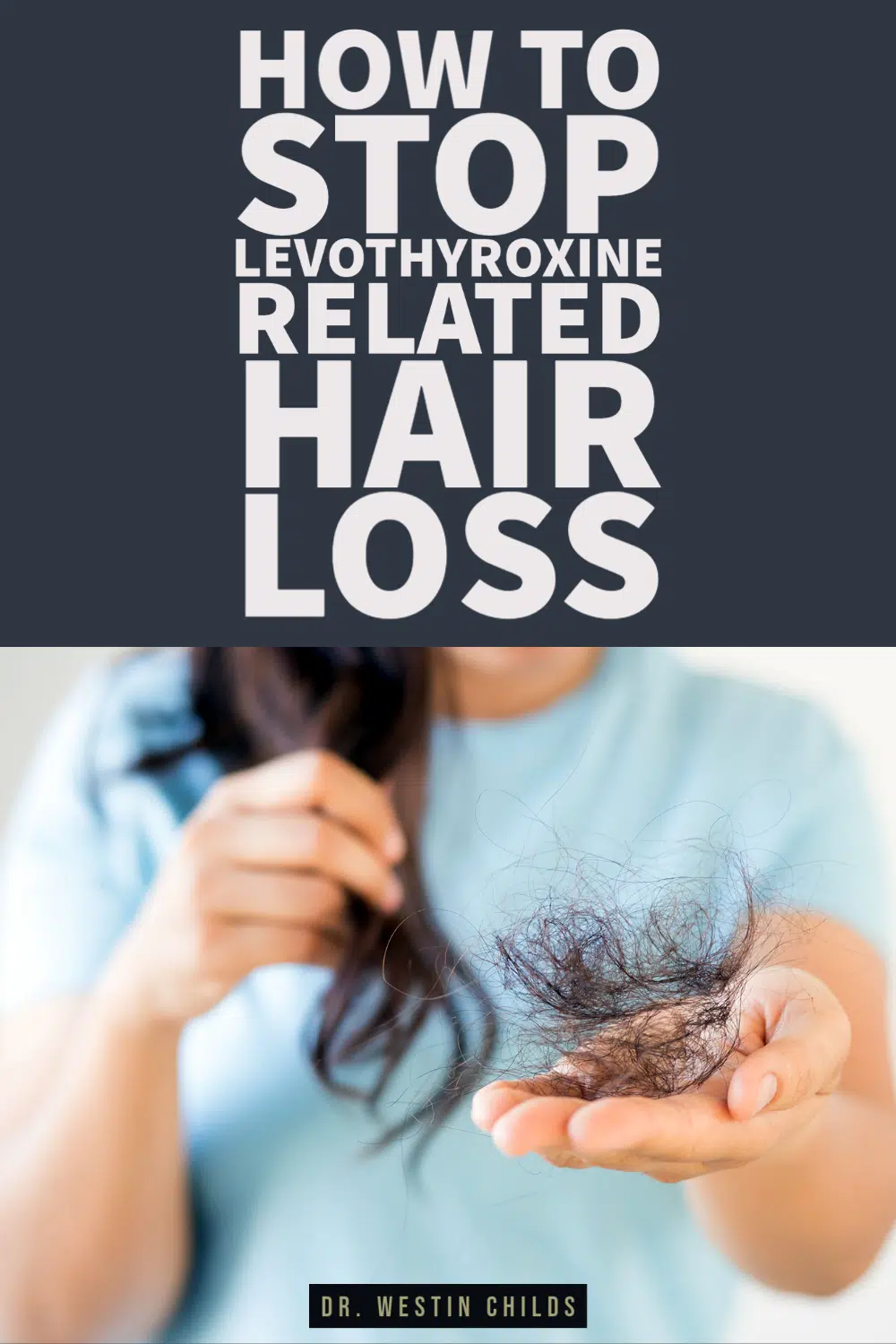


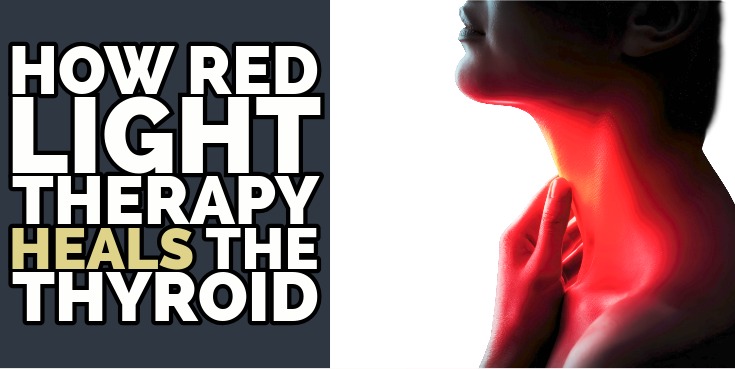
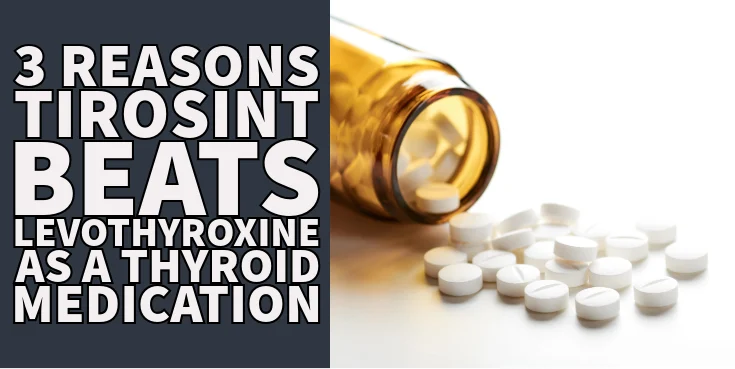

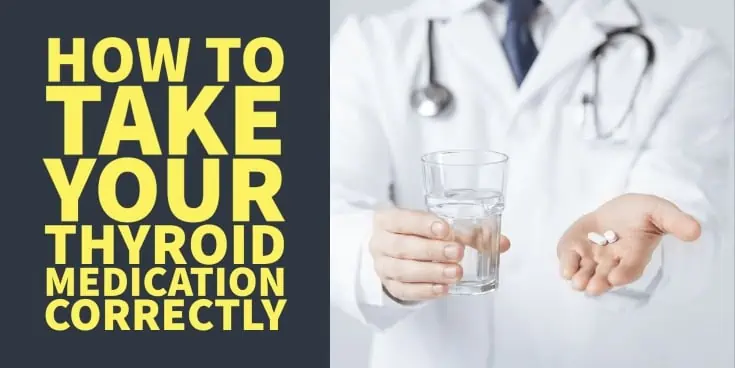

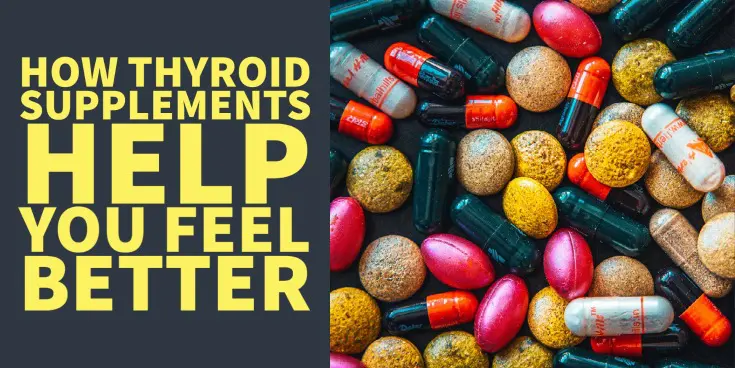

Hi Dr. Childs, you mention “this conversion chart” but there is no link. I believe I found it, but you probably would like to fix that. I think there’s another one as well. I’ll try to find it.
I appreciated this article so much. My hair loss is out of control, and I just thought I was stuck with it. (Looking at wigs, that’s how bad it is.) My doctor only tests for TSH but she agreed to test for T3 and T4. Last two tests, my TSH was 5.2 and then down to .7 after she had me take two pills on Sunday to increase my dosage. Is that drop something to be alarmed about?
Hi Kathy,
Thanks for letting me know! It should be fixed and here is the link: https://www.restartmed.com/thyroid-medication-dosage-chart/
Also, it’s hard to get much information when all you have is the TSH. You’ll need to get the labs here in order to understand what is happening: https://www.restartmed.com/normal-thyroid-levels/
I have lost all of my hair, I had beautiful hair down to my waist full of curls. Now I have hair to my chin with bald spots and my doctor refuses to change my medication.
I am so depressed over this
My husband and I made a decision after 4 years to stop taking my levothorixine, as of tomorrow and try the all natural way. My T 3 is great but my T 4 is high and my doctor said oh you skipped pills but I never did. So she increased my medication.
I feel so alone. No more medication for me.
Hi Catrina,
I would recommend checking out these posts for more information!
https://www.restartmed.com/thyroid-hair-loss/
https://www.restartmed.com/hair-loss-from-thyroid/
https://www.restartmed.com/thyroid-supplements/
https://www.restartmed.com/product/thyroid-hair-regrowth-complex/
Hi Dr. Childs,
What is it about changing between what should be the same meds, that causes hair loss? Was on Nature Throid and hair was fine. When it became unavailable, my Dr. had a local compounding pharmacy make my meds to be exactly like the Nature Throid. I am now having major hair loss. Nothing else has changed. Normal tsh, t4, t3, hormones, but high 165 TPO. Its all so frustrating.
Hi K.C.,
It’s not clear to me what causes the issue but I can say that switching between medications seems to solve the issue for most people.
Hi,
I’ve been experiencing hair loss for the past 7 months (not lots of shedding more like my hair just wasn’t growing back properly!) I’ve also experienced itchy skin including a very itchy scalp. A saw a dermatologist but she said my scalp was completely healthy! My doctor diagnosed me as primary hypothyroid and put me on levothyroxine 50mg dose once a day. I’ve been taken it for the past 6 days and have noticed an increase in hair shedding (not dramatic but definitely more than before!). What does this mean? Is the shedding linked to medication or is it too early? If so, should I contact my doctor and ask him to swap my dosage/ brand? (My itchy skin has gotten better tho!).
Hello,
It’s hard to make any definitive judgments after only 6 days, you would need to stick with it longer to be sure it’s related to the medication and not some other cause. Please see this article for more information: https://www.restartmed.com/thyroid-hair-loss/
Hi,
I took the RAI therapy back in June and as of September I have been on Unithroid and now I am on levothyroxine. I have been experiencing hair loss. I used to lose around 80 hairs per day but, now I lose up to 200 per day ( yes, I actually count the hair that I lose). Everything I read on the internet about treatments causes hair loss. Can someone actually go completely bald using levothyroxine. Since I had the RAI therapy I have no choice but to take these medications for the rest of my life. The entire thing is quit depressing and not to mention the constant nausea I feel. Any advice Doctor?
Thank you
Hi Mojgan,
There’s a very high chance that you can stop or completely reverse the hair loss. I would recommend looking at this post for more information: https://www.restartmed.com/thyroid-hair-loss/
Hi,
I had partial thyroid surgery due to a benign nodule. My thyroid levels were fine before surgery. Within one week after surgery massive hair fall out, scalloped tongue, fatigue. Finally got in to see an endocrinologist after my TSH levels showed high. My question is – how long do I give Synthroid a chance I have been on it for a month. My TSH level went from a 4.5 to a .9 But still seeing hair loss. When do you know to ask your dr should I switch? Did I give it enough time ?
Stacey
Hi Stacey,
As far as hair loss is concerned, it may take months to see a change. This article explains this concept in much more detail: https://www.restartmed.com/thyroid-hair-loss/
It sounds like you will probably need some T3 in addition to your T4.
I have been on and off levothyroxine (and other brands) for years due to major anxiety and continual hair loss. Every time I am prescribed more than 112 of levothyroxine, synthroid or tirosint I start having major anxiety and hair loss, but my doctor is insisting that I increase my dose to 137. I refuse to take the 125 or 137 because of the anxiety and hair loss, but have been steadily taking the 112. After taking the 112 for 4 months now, I can tell that I am still fatigued, but am afraid to start taking the 125 again. When I mention the anxiety and hair loss to my doctor she either claims it’s because I am not taking enough or it is caused by stress and not the medication. I have no hair loss or anxiety when I am not on the medication. I have a doctors appointment soon and am at my wits end with this medication, which is why I have quit taking it in the past. Any suggestions would be appreciated.
Ever since Naturethroid was removed from the market I have had trouble finding a substitute. I’ve tried 4 different combinations and in currently on NP Thyroid but I’m feeling lousy. Very tired. Do you think they will ever bring back NatureThroid??
Thanks!
Hi Cathy,
Yes, I believe that they probably will at some point. There are ways to get the same ingredients from Nature-throid from certain compounding pharmacies. I would look into that option while you wait! Only certain pharmacies do this, though, so you will need to locate those that do.
Hi Dr!!
Also dealing with hair loss. I started taking armor two years ago bc my thyroid was low and ever since it breaks off and slowly falls out. I tried to stop and it gives me so bad anxiety. I managed to reduce the dose to 15mg and it helped but hair loss continues. Now I’m told I’m estrogen dominant and low progesterone. I read that can contribute to hypothyroid. Currently my TSH is .489 free T3 is 1 and free tT4 is 2.4. Do these tell you something as what to do? I’m trying natural to fix my thyroid by fixing my cortisol and other hormones.
Hi Tanya,
That information doesn’t give me much, unfortunately. I have tons of resources all designed to help you manage your hormones and your thyroid but you will probably need someone who knows what they are doing to order the right tests at least.
In regards to hair loss, please see these posts:
https://www.restartmed.com/thyroid-hair-loss/
https://www.restartmed.com/treatments-for-thyroid-hair-loss/
In regards to estrogen dominance, please see these posts:
https://www.restartmed.com/estrogen-dominance-symptoms/
https://www.restartmed.com/estrogen-supplements/
I have information on just about every topic related to the thyroid you can think of but in order for it to work you will need to know which problems you are suffering from.
Hi
I’m on NDT numbers are good but am experiencing hair loss – dr thinks there maybe a link to hormone levels in particular high testosterone. I read somewhere that there can be a link between the thyroid issue and increased testosterone. Are you able to shed some light please ?
Hi Michelle,
Thyroid dysfunction can certainly impact testosterone levels but it impacts each person in a different way. Some women experience an elevated testosterone level and the symptoms of PCOS whereas other women experience low testosterone levels and the symptoms associated with that.
Testosterone replacement therapy, for instance, is a potential great therapy for women with Hashimoto’s who have low testosterone: https://www.restartmed.com/testosterone-remedy-for-hashimotos-thyroiditis/
Women with high testosterone would obviously want to avoid it and focus on improving thyroid function and other sex hormones: https://www.restartmed.com/estrogen-supplements/
I have resources on my blog that discuss how to lower or increase progesterone, testosterone, and estrogen levels that you may want to take a look at.
I. I also experienced hair loss with Tirosint, but for the first time ever lost the rounded face and weight I wanted, stopped the Tirosint and started alternating with Synthroid; that stopped the hair loss, but weight came back. Then went to pure Synthroid, more normal weight but back to facial weight gain. So just started Tirosint again, thinking about doing just one Synthroid once or twice a week, and mostly Tirosint to help my weight, but hopefully no hair loss. Would appreciate any thoughts on this alternating meds, my doctor has been open to it but I have found little information out there for alternating thyroid meds.
Hi Brett,
There are also many other causes of hair loss in addition to thyroid medication and thyroid function! Be sure to check out the other causes as well: https://www.restartmed.com/thyroid-hair-loss/
I was diagnosed with low thyroid and asked Dr. for T3, was put on 25 mcg Cytomel later increased to 50. I had also been on 2 mg. Estradiol. Last January, my OB-GYN wanted me to stop my estradiol, and my primary added 60 mg. Armor thyroid.
Since then my hair is falling out and extremely dry! I’m thinking of stopping the Armor and adding back 1 mg of Estradiol. Any thoughts?
Hi Jan,
I can’t provide you with medical advice or recommendations on how to adjust your hormones but I can tell you that both Armour thyroid and Cytomel can result in hair loss:
https://www.restartmed.com/cytomel-related-hair-loss/
https://www.restartmed.com/thyroid-hair-loss/
I started 200 of levothyroxine about 4 months ago and it just got reduced to 150 about 2 weeks ago. I’m loosing a lot of hair in the shower & on my brush and my hair feels dry & greasy. I go in for lab work about every 6 weeks. should I ask my doctor to test for B12, biotin, iron, zinc, etc mentioned above? There was no mention of taking supplements so I’m curious if that can help?
Hi Laurel,
It’s worth testing for those nutrients (some of them) but there are also a lot of potential other factors that can contribute to hair loss in thyroid patients. I would recommend reading these articles for more information:
https://www.restartmed.com/thyroid-hair-loss/
https://www.restartmed.com/treatments-for-thyroid-hair-loss/
Hello Dr. Child’s,
I’d like to share my experience with you and your readers as I’ve been dealing with thyroid issues for 20 years. I have a wonderful Dr. in California who after listening to me complain about my chronic hypothyroidism symptoms finally told me to order a blood spot test instead of a regular blood draw from my local laboratory. My TSH, T3, T4 were showing I had plenty of thyroid (I take Levothyroxine ) however I still had all my symptoms of hair loss, low energy, etc.
The blood spot test he had me order showed I had virtually no T3 or T4 even though the TSH still showed I was over medicated. For me personally blood drawn from a lab was not sensitive enough to pick up on my actual level of thyroid. For the first time in over 5 years I am finally feeling like I used to! Hallelujah! Just wanted others to know about this option and to try it as an alternative because some of us are different.
Hi Patrica,
Thanks for sharing! For those interested, you can learn more about the value of T3 and T4 levels and why they matter here: https://www.restartmed.com/normal-thyroid-levels/
Do you feel like there’s a correlation between Levothyroxine and alopecia areata? I got a hashimotos diagnosis a year ago and never had any issues with alopecia areata until this last year.
Hi Shannon,
Yes, there’s definitely a correlation between levothyroxine and alopecia areata but it’s typically not causal. Thyroid patients are more likely to experience alopecia because many people with hypothyroidism have Hashimoto’s.
Hi Dr. Childs,
Menopausal symptoms and abrupt period stopping at 45 years old lead to comprehensive testing and a Hashimoto’s diagnosis 10 years ago, showing my TPO at >2000. PCP put me on Synthroid and felt even worse. Found a good Naturopath who helped me by doing a combo of Levo and Lio. It took about 8 years of adjusting dosing (bloodwork every 8 weeks) to level out and get my TPO down. Year 9, 2021, I suddenly suffered significant hair thinning (almost 1/3 of my hair) but thyroid med doses have not changed. Is it possible these drugs would suddenly cause hair loss if I never experienced it before? Or should I be looking at other causes? (Testosterone levels are normal, dermatologist says scalp is normal.) Many thanks for your help, and all of the resources you’ve given us on this page!
Hi Amy,
It’s unlikely that your thyroid medications themselves would suddenly cause hair loss, if they are the cause it usually happens right away. It could still be related to thyroid function, though.
Dr.,
I am 76 y/o female and have had multiple symptoms for hypothyroidism: hair loss, constipation, cold intolerance, low energy and others. I have been using women’s Rogaine for the hair loss for several years. In November, I had a TSH level of 5.89 and T4 of 7.6 I started levothyroxine in January and repeated the labs two months later. My TSH is now 2.8 and they did not complete the T4 bc the TSH “was in normal range.” I have had major hair loss which is really distressing me, but feel better overall. My energy is improved and sleep is better, Now I’m concerned bc of the hair loss and also bc I thought that the numbers were supposed to INCREASE not decrease. I’m confused and am awaiting a reply from my dr. but would like your opinion as she is a GP and may not know all the complications of the hormone dosage that you described, or the implications of changing the med type. Thank you in advance.
Hi Christine,
That is exactly what you would expect would happen when taking thyroid medication. Thyroid medication will reduce the TSH and should increase T4 levels in a dose-dependent manner.
Hi Dr. Childs,
Great article. I’ve been reading many of them and they’re very helpful, so thank you!
Have you heard of thyroid issues causing scalp pain accompanied with increased hair shedding and thinning?
I’m currently on Synthroid and have been on it for about 2 years now. My TSH is in the normal range (1.77 mIU/L ) as is my Free T4 (14 pmol/L).
For months, even before starting the medication, the nerves in my scalp have given me a very uncomfortable prickly sensation. Sometimes, it hurts to move my hair and often feels like my scalp is burning or my hair is being pulled even with loose hairstyles.
My hair has thinned considerably and doesn’t seem to regrow very well.
Could this be related to the thyroid or thyroid treatment?
Thanks so much for any insights you can provide.
Hi Kim,
I have not personally seen anyone endorse those exact symptoms. I’ve seen many cases of hair loss, but none of hair loss associated with scalp pain.
I’ve had those symptoms, Kim. Prickly discomfort and aching all over the scalp, especially when the hair is moved, or you change your parting. Pain was also accompanied by hair loss. It feels like extreme sensitivity in your scalp, it hurts even to press your head against a pillow when you sleep.
I usually take painkillers, and I find the discomfort only really eases with application of heat, especially warm water. You can’t jump in the shower every time your scalp acts up during the day, though, but getting the hairdryer out and blasting it on the really sore places can give a bit of relief.
My PCP put me on Synthroid (lowest dose) several years ago for low thyroid. I was experiencing no symptoms of low thyroid. After starting Synthroid, my hair started falling out. She offered no other medication, but sent me to a dermatologist. The dermatologist asked me if having my hair fall out was stressful, and I said yes. She said the stress about losing my hair was causing my hair loss. I’m not kidding! I just refused to take the Synthroid any longer. My hair stopped falling out.
That PCP left the practice. My new PCP said my hypothyroidism was marginal, and she would never have put me on Synthroid if I wasn’t experiencing any symptoms. Yay! But she left the practice after 2 years.
I just was assigned another PCP and she had antibodies tested as well. My THS is 5.99, my Thyroglobulin antibody level was 39. My Thyroidperoxidase antibody level was 459. She is referring me to an endocrinologist. I’m afraid I’ll be put on Synthroid again. Any thoughts for me? Which of the alternate drugs would be least likely to cause hair loss for me again? It needs to be covered by insurance. My first PCP said the natural thyroid medication was not covered by insurance and was very expensive, so I was stuck with Synthroid.
Thank you so much!
Sally
Hi Sally,
All thyroid medications have the potential to cause hair loss, so it’s usually a matter of trial and error with the class and dose before you figure out what works. If Synthroid didn’t work for you, your next step would be to consider Tirosint or Tirosint-Sol.